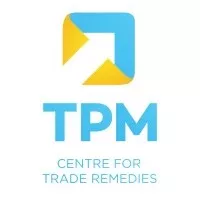- The imposition of trade remedial measures may reasonably take upto 30 months from the time at which the industry started suffering.
- To allow for early relief, the Anti-Dumping Agreement provides for, (a) consideration of shorter investigation periods, (b) imposition of provisional measures, and (c) retrospective imposition of measures.
- The consideration of the above can reduce the period in which relief is administered to 14-16 months. Thus, the imposition of provisional measures is necessary to safeguard the interests of the domestic industry.
- Even if, in the final determination, it is found that no measures are necessary, or the quantum of duty determined is lower, an importer may seek refund of the excess duties paid. Therefore, provisional measures do not adversely impact the interests of other parties.
- While provisional measures may be imposed for upto 6 months, the duration may be extended for an additional 3 months, if a significant number of exporters involved in the investigation agree to the same.
- Other jurisdictions such as US, Canada and Australia are mandatorily required to issue preliminary findings in each investigation. Further, European Union also imposes provisional duties in majority of the cases. There is a need for similar approach to be adopted in India.
The imposition of trade remedial measures in the form of anti-dumping duty or antisubsidy duty involves a lengthy process. As a result, the domestic industry does not get relief against unfairly priced imports for the duration of the investigation. Provisional measures are intended to provide immediate relief to the domestic industry, within a short duration of time, and mitigate the continuous injury being faced by them.
Timelines involved in trade remedial investigations
A typical investigation process would span more than 2 years. Assume that an industry began suffering due to dumping in April 2022. Since the DGTR requires that applications should be filed with a period of investigation of one year, it implies that the domestic industry must at least furnish data upto March 2023, that is for financial year 2022-23 in its application.
An application is required to be filed within the end of four months from the end of the investigation period, that is in the present case, by June 2023. Normally, owing to extensive information required, most applicants are able to file applications very close to the deadlines. Thereafter, the Authority generally takes two months to initiate the investigation. This implies that, at the stage of initiation, 18 months have already lapsed since the period when the industry started suffering.
Post initiation, relevant information is called from the exporters, information provided by both domestic industry and exporters is verified, a public hearing is conducted with opportunity for written submissions and rebuttal submissions, and a Disclosure Statement is issued to allow parties an opportunity to defend their interests. Further, the Authority also conducts an economic interest analysis. It is only after these steps are completed that the DGTR is able to issue its final findings.
The law allows a period of one year for the completion of the investigation, which is further extendable by six months. While the DGTR has been making efforts to reduce the time involved in arriving at the final determination, a period of at least nine months can be considered reasonable time frame for completion of investigation. Thereafter, the Ministry of Finance considers the final findings. The Ministry of Finance is given a period of three months to consider the recommendations. In effect, this means that the domestic industry receives a relief from unfair competition after a total of 30 months from the time it started suffering injury. Therefore, an industry that started suffering injury due to unfair dumping in April 2022 would receive relief in, at best, September 2024.
Reliefs available under the law
The considerable time gap between the stage at which the industry starts suffering injury till the imposition of duty can lead to the injury to the domestic industry getting aggravated. In order to address such situations, the WTO laws and guidance provide a scope for early relief in terms of– (a) discretion to the Authority to consider shorter investigation period, of as low as six months; (b) imposition of provisional measures, any time after expiry of 60 days from the date of initiation of investigation; and (c) imposition of anti-dumping duty with retrospective effect. In effect, such measures would shorten the period of 30 months to only about 14-16 months.
However, under the Indian law, consideration of an investigation period shorter than one year is not permissible, except where adequate justification is provided. Thus, the only provision available under the Indian law to allow effective and quick respite to the domestic industry is that of imposition of provisional duties. Even though retrospective imposition of measures is permissible under the Rules, India has not imposed antidumping duty on retrospective basis so far. Therefore, it would be in the larger interest of the applicant domestic producers to seek imposition of provisional measures, pending completion of the investigation.
Legal requirements concerning imposition of provisional measures
Under the WTO Anti-Dumping Agreement, the Indian Customs Tariff Act and the Indian Anti-Dumping Rules, provisional duties can be levied, subject to the following conditions.
- An investigation has been initiated in accordance with the requirements of the Agreement, with due notice to all parties, and an opportunity to submit relevant information.
- The Authority has made a preliminary determination about the existence of dumping and consequent injury to the domestic industry.
- The Authority finds that such measures are necessary to prevent injury being caused during the investigation.
Duration of the provisional measures
The provisional measures can be imposed after 60 days from the date of initiation of the investigation. Under the Indian law, the provisional measures can be imposed for a maximum period of 6 months, which can be extended by three months, for a total duration of 9 months. However, such period can be extended only if a significant number of exporters involved in the investigation agree to such extension.
It is interesting to note that in many instances, the exporters participating in the investigation seek multiple extensions for filing response to the questionnaires issued by the DGTR, thereby, extending the total duration of the investigation. For instance, in the ongoing investigation concerning Isobutylene-Isoprene Rubber (IIR), due to an extended time allowed for filing of comments on PUC/PCN, the responding exporters received a time of 160 days for filing their questionnaire responses, compared to the 30 days allowed under law.
The result of such extensions is the delay in availability of effective remedy to the affected domestic industry. In such a situation, the most favourable course of action would be that the exporters should be allowed an extension for filing their questionnaire responses only where they agree to an extension to the duration of the provisional measures, as provided in law. Unless a major proportion of exporters agree to a longer duration of provisional levy of duty of 9 months, no extension of time should be granted.
To view the original article click here
Originally published December 2023
The content of this article is intended to provide a general guide to the subject matter. Specialist advice should be sought about your specific circumstances.



